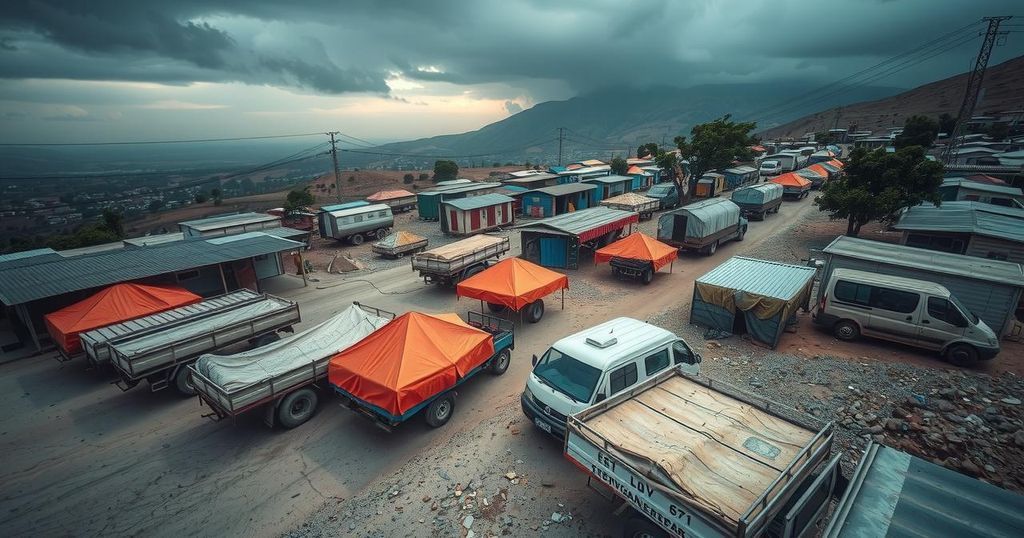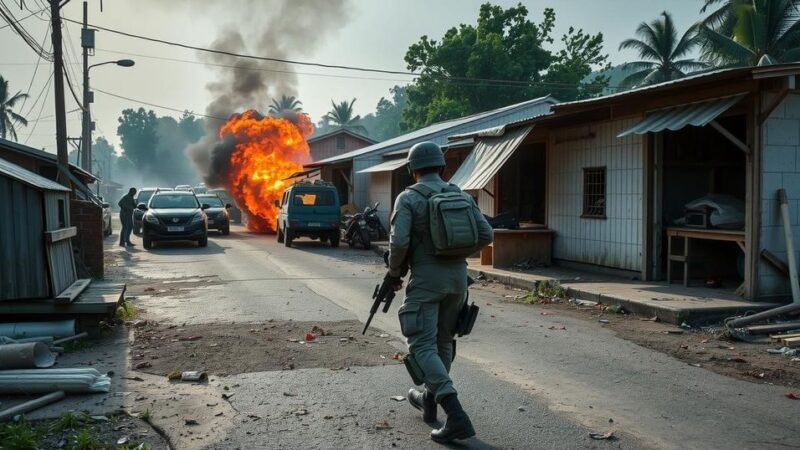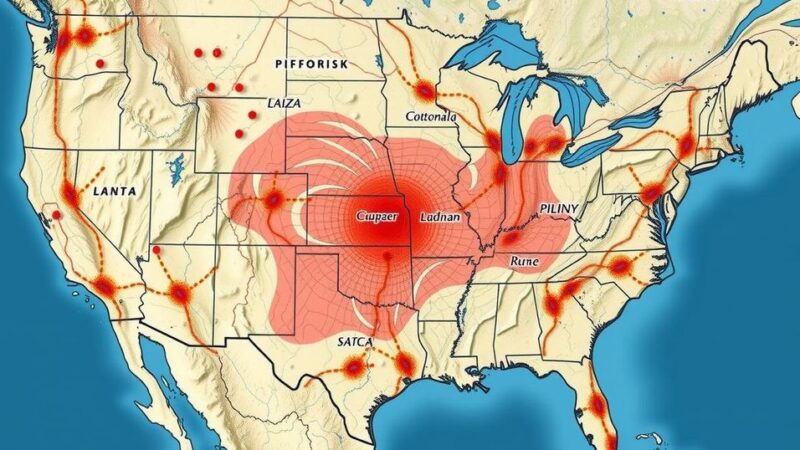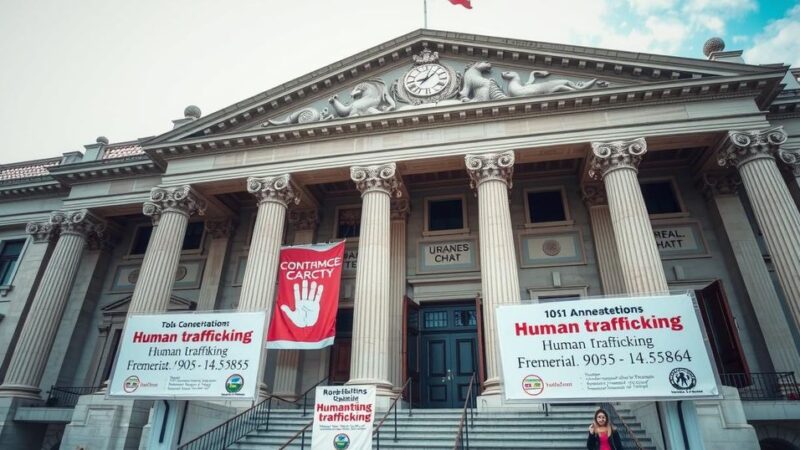Ethiopia has begun evacuating 80,000 people after a series of small earthquakes raised concerns about volcanic activity. The earthquakes in the Afar, Oromia, and Amhara regions, including a significant tremor of 5.8 magnitude, have caused damage to homes and prompted emergency responses. Experts urge enhanced building safety standards to prevent vulnerabilities amid frequent earthquakes.
In light of recent seismic events, the Ethiopian government has initiated an evacuation of approximately 80,000 residents from the Afar, Oromia, and Amhara regions following several minor earthquakes. The seismic activity, which has included at least ten recorded quakes since Friday, raised alarms about possible volcanic activity, particularly after disturbances in the Dofen Volcano. The region has seen significant geological tension, with quakes measuring as much as 5.8 on the Richter scale and aftershocks continuing to menace local populations.
The United States Geological Survey noted a notable earthquake occurring early on Saturday morning, approximately 56 kilometers southeast of Ambosa in the Oromia region. With reports of two dozen tremors and aftershocks in Awash Fentale district since September, many residents recounted the disconcerting experience of sudden nighttime shaking. Zumara Mamo, a resident of Abomsa, shared her chilling experience of waking to a strong tremor while tending to her child. Others in the region have been similarly impacted, with reports of widespread displacement and property damage.
The Ethiopian government has stated that, along with evacuation efforts, it is closely monitoring seismic developments and has dispatched emergency personnel to evaluate damage in twelve districts. As a precaution, the Ethiopian Disaster Risk Management Commission indicated that over 51,000 residents are under threat from these recurrent earthquakes, with measures already taken to relocate over 13,000 individuals.
Experts have expressed significant concerns regarding building safety standards in Ethiopia, especially in Addis Ababa, where many structures do not adhere to updated safety codes. Professor Esayas Gebreyohannes from Addis Ababa University remarked that the existing building codes need periodic revisions, underscoring the lack of compliance with safety standards observed in local construction practices. This architectural vulnerability makes the region particularly susceptible to seismic impacts and requires urgent attention from government agencies.
Ethiopia is situated in a seismically active zone where earthquakes and volcanic activities are relatively common. Recent geological studies indicate an increase in the frequency and intensity of these events, prompting authorities to take precautionary measures to safeguard local populations. Furthermore, infrastructure challenges, particularly concerning adherence to building safety codes, exacerbate the risks posed by seismic activity, particularly in urban centers such as Addis Ababa. Understanding the antecedents and consequences of such natural events is crucial for effective disaster management and urban planning.
In summary, Ethiopia is facing significant challenges due to recent earthquakes, leading to the evacuation of approximately 80,000 individuals. The government’s response includes both evacuation and monitoring of geological activity to mitigate risks. As experts highlight the deficiencies in construction practices and building codes, it is imperative for authorities to enhance safety standards to protect vulnerable populations in the face of ongoing seismic threats.
Original Source: www.voanews.com







